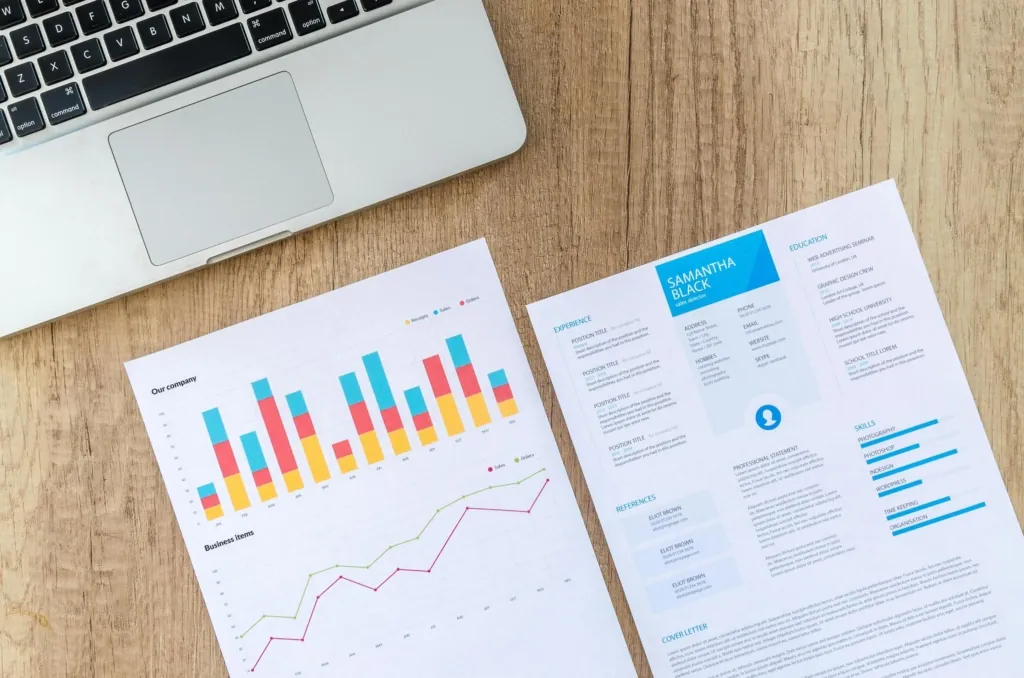Das Gastgewerbe ist hart umkämpft, und um sich von der Masse abzuheben, bedarf es mehr als nur einer großartigen Lage und Ausstattung. Eine gut geplante Marketingkampagne für Hotels kann den Unterschied ausmachen, wenn es darum geht, die Buchungszahlen zu steigern, die Markenbekanntheit zu erhöhen und die Kundenbindung zu stärken.
In diesem Leitfaden erläutern wir effektive Hotelmarketingstrategien anhand von Beispielen aus der Praxis und verwertbaren Erkenntnissen, die Ihnen helfen, eine erfolgreiche Kampagne zu erstellen.
Warum Marketing-Kampagnen für Hotels wichtig sind
Bei einer Hotelmarketingkampagne geht es nicht nur um den Verkauf von Zimmern - es geht darum, unvergessliche Erlebnisse zu schaffen, potenzielle Gäste anzusprechen und langfristige Beziehungen zu pflegen, die zu Folgegeschäften führen. In der heutigen digitalen Landschaft suchen Reisende nicht mehr nur nach einer Unterkunft, sondern nach einzigartigen, personalisierten Erlebnissen, die auf ihre Vorlieben, ihren Lebensstil und ihr Budget abgestimmt sind.
Angesichts des zunehmenden Wettbewerbs im Gastgewerbe kann eine wirksame Marketingstrategie einen erheblichen Einfluss darauf haben, wie oft Ihre Zimmer gebucht werden, welche Art von Gästen Sie anziehen und wie gut Ihr Hotel online und offline wahrgenommen wird.
Die wichtigsten Vorteile einer starken Marketingkampagne:
- Höhere Belegungsraten - Eine gut durchgeführte Marketingkampagne trägt dazu bei, dass die Zimmer auch in den traditionell schwachen Jahreszeiten gefüllt werden, indem die richtige Zielgruppe zur richtigen Zeit mit attraktiven Angeboten und Aktionen erreicht wird.
- Stärkere Markenbekanntheit - Je sichtbarer Ihr Hotel in Suchmaschinen, sozialen Medien und auf Reisebuchungsplattformen ist, desto mehr potenzielle Gäste erkennen Ihre Marke und vertrauen ihr. Eine starke Marketingpräsenz sorgt dafür, dass Ihr Hotel in einem überfüllten Markt hervorsticht.
- Verbesserte Kundentreue - Gäste, die ein großartiges Erlebnis haben und sich durch personalisierte Angebote, Treueprogramme und Folgekommunikation wertgeschätzt fühlen, kommen eher wieder und empfehlen Ihr Hotel weiter.
- Erhöhte Direktbuchungen - Eine starke digitale Marketingkampagne verringert die Abhängigkeit von OTAs (Online Travel Agencies) wie Expedia und Booking.com, indem sie mehr Besucher auf Ihre Website bringt. Dies führt zu höheren Gewinnspannen durch den Wegfall von Provisionsgebühren Dritter.
- Besseres Engagement und Reputationsmanagement - Eine gut geplante Marketingkampagne sorgt dafür, dass Ihr Hotel mit früheren, aktuellen und künftigen Gästen in Verbindung bleibt. Ansprechende Inhalte, Interaktionen in den sozialen Medien und zeitnahe Antworten auf Online-Bewertungen tragen zum Aufbau eines positiven Markenimages und zur Steigerung der Glaubwürdigkeit bei.
Warum Marketing für jedes Hotel wichtig ist
- Moderne Reisende recherchieren ausgiebig - Laut Branchendaten besuchen 80% der Reisenden vor der Buchung einen OTA, was bedeutet, dass Ihre Online-Präsenz optimiert sein muss, um ihr Interesse zu wecken.
- Personalisierung ist der Schlüssel - Über 46% der Kunden sagen, dass personalisiertes Marketing das Vertrauen in eine Marke stärkt. Eine maßgeschneiderte Kampagne gibt den Gästen das Gefühl, dass Ihr Hotel ihre Bedürfnisse versteht.
- Mobile Buchungen sind auf dem Vormarsch - Mehr als ein Drittel (34%) der Hotelbuchungen erfolgen über mobile Apps, so dass mobil optimierte Marketingkampagnen eine Notwendigkeit sind.
- Ein wettbewerbsfähiger Markt erfordert Innovation - Bei so vielen verfügbaren Optionen haben Hotels, die kreative Marketingstrategien (wie Videoinhalte, Partnerschaften mit Influencern und KI-gestützte Empfehlungen) nutzen, einen entscheidenden Vorteil.
Ihre Marketingkampagne ist der erste Eindruck, den Ihr Hotel bei potenziellen Gästen hinterlässt. Ob über soziale Medien, E-Mail-Kampagnen oder Suchmaschinenwerbung - eine gut geplante Strategie zieht die richtige Zielgruppe an, präsentiert das einzigartige Angebot Ihres Hotels und überzeugt Reisende davon, Ihr Haus der Konkurrenz vorzuziehen.
Verstehen Sie Ihr Zielpublikum
Bevor Sie eine Hotelmarketingkampagne starten, müssen Sie Ihre idealen Gäste identifizieren und verstehen. Verschiedene Gästesegmente haben einzigartige Bedürfnisse, Vorlieben und Buchungsgewohnheiten. Indem Sie Ihre Marketingbotschaft auf die richtige Zielgruppe abstimmen, können Sie das Engagement maximieren, die Direktbuchungen steigern und die Gästezufriedenheit verbessern.
Wichtige Reisesegmente zu berücksichtigen:
Freizeitreisende
Diese Gäste suchen unvergessliche Erlebnisse, Komfort und Entspannung. Sie fühlen sich zu Hotels hingezogen, die Wellness-Dienstleistungen, landschaftliche Aussichten, Abenteueraktivitäten und kulturelle Erlebnisse anbieten. Marketing-Strategien, die lokale Attraktionen, Restaurants vor Ort und spezielle Pakete hervorheben, sind für diese Gruppe gut geeignet.
Geschäftsreisende
Effizienz und Komfort haben in diesem Segment oberste Priorität. Geschäftsreisende suchen schnelles WLAN, Tagungsräume, 24/7-Kundenservice und einfachen Zugang zu Verkehrsmitteln. Sprechen Sie sie mit Kampagnen an, die Firmenpakete, Treueprogramme und Flexibilität bei Last-Minute-Buchungen hervorheben.
Familienreisende
Familien legen oft Wert auf eine kinderfreundliche Ausstattung, Sicherheit und geräumige Unterkünfte. Die Hervorhebung von Merkmalen wie Familiensuiten, Aktivitäten für Kinder, Babysitterdienste und Ermäßigungen für längere Aufenthalte wird diese Zielgruppe anziehen.
Luxus-Reisende
Diese Gäste erwarten erstklassige Dienstleistungen, Exklusivität und persönliche Erlebnisse. Das Marketing für diese Gruppe sollte private Suiten, Concierge-Services, feines Essen und VIP-Behandlung hervorheben. Hochwertiges Videomarketing und die Zusammenarbeit mit Influencern eignen sich gut, um ihre Aufmerksamkeit zu gewinnen.
Budget-Reisende
Preissensible Gäste suchen nach erschwinglichen und dennoch komfortablen Unterkünften. Um sie anzusprechen, sollten Sie sich auf Sonderrabatte, Mehrwertdienste, kostenloses Frühstück und flexible Stornierungsbedingungen konzentrieren. Werbeaktionen über E-Mail-Marketing und soziale Medien können dieses Segment effektiv ansprechen.
Weitere zu berücksichtigende Zielgruppen:
- Alleinreisende - Häufig suchen sie nach sozialen Erfahrungen, Sicherheit und Erschwinglichkeit. Förderung von Gemeinschaftsveranstaltungen, gemeinsamen Räumen und Gruppenaktivitäten.
- Umweltbewusste Reisende - Sie bevorzugen Hotels mit Nachhaltigkeitsinitiativen wie energieeffizienten Zimmern, umweltfreundlichen Toilettenartikeln und Speisen vom Bauernhof bis zum Tisch. Grüne Marketingkampagnen können diese Gruppe effektiv ansprechen.
- Fernarbeitnehmer/Digitale Nomaden - Mit dem Aufkommen der "Work-from-anywhere"-Kultur suchen diese Reisenden nach Co-Working-Spaces, zuverlässigem Wi-Fi, Ermäßigungen für Langzeitaufenthalte und Networking-Möglichkeiten. Marketingmaßnahmen sollten arbeitsfreundliche Annehmlichkeiten hervorheben.

Die besten Marketingstrategien für Hotels, die funktionieren
Marketing in der Hotelbranche geht über traditionelle Werbung hinaus. Es geht darum, mit potenziellen Gästen in Kontakt zu treten, ihre Bedürfnisse zu verstehen und Ihr Hotel als die beste Option für ihren Aufenthalt zu präsentieren. Mit der richtigen Strategie können Sie die Buchungszahlen steigern, die Markentreue erhöhen und das Gästeerlebnis verbessern.
Hier finden Sie einige bewährte Marketingstrategien für Hotels, mit denen Sie sich von der Konkurrenz abheben können.
Influencer & Social Media Marketing
Soziale Medien sind ein unverzichtbares Instrument im modernen Hotelmarketing. Mit Milliarden von Nutzern weltweit sind Plattformen wie Instagram, TikTok und Facebook der Schlüssel zum Aufbau der Markenbekanntheit, zur Kontaktaufnahme mit potenziellen Gästen und zur Förderung von Direktbuchungen geworden.
Die Macht des Influencer Marketing
Partnerschaften mit Influencern können Ihrem Hotel Authentizität und Glaubwürdigkeit verleihen. Menschen vertrauen echten Erlebnissen mehr als herkömmlicher Werbung, und Influencer haben ein festes Publikum, das sie für Empfehlungen heranzieht. Hotels können mit Reise-Influencern, Bloggern und sogar Mikro-Influencern zusammenarbeiten, um ansprechende Inhalte zu erstellen, die die Atmosphäre, die Annehmlichkeiten und die Erfahrungen des Hotels präsentieren.
Hotels sollten auch nutzergenerierte Inhalte (UGC) fördern. Wenn Gäste ihre Erfahrungen auf sozialen Medien teilen, bieten sie kostenlose, organische Werbung, die ihr persönliches Netzwerk von Freunden und Followern erreicht. Ein markengeschützter Hashtag oder ein Social-Media-Wettbewerb kann dies unterstützen.
E-Mail-Marketing und Personalisierung
Warum E-Mail-Marketing immer noch funktioniert
Trotz des Aufstiegs der sozialen Medien ist E-Mail-Marketing nach wie vor eine der wichtigsten Kostengünstig Strategien, um ehemalige, aktuelle und potenzielle Gäste anzusprechen. Im Gegensatz zu Anzeigen, die nach einem kurzen Moment verschwinden, bleiben E-Mails im Posteingang und ermöglichen es potenziellen Gästen, die Nachricht erneut zu lesen, wenn sie bereit sind zu buchen.
Wie man E-Mail-Marketing effektiv gestaltet
Personalisierung ist der Schlüssel zu einer erfolgreichen E-Mail-Kampagne. Allgemeine Massen-E-Mails funktionieren nicht mehr - die Menschen wollen individuelle Inhalte, die sie direkt ansprechen. Personalisierte E-Mails, die auf früheren Buchungen, Vorlieben und Verhaltensweisen basieren, können die Öffnungsrate und das Engagement deutlich erhöhen.
So könnte beispielsweise ein Gast, der zuvor ein Spa-Paket gebucht hat, eine E-Mail mit exklusiven Wellness-Angeboten erhalten. Einem Geschäftsreisenden, der häufig Aufenthalte an Wochentagen bucht, könnten Firmenrabatte oder Treuevorteile angeboten werden. Automatisierte E-Mails für Buchungsbestätigungen, abgebrochene Reservierungen und besondere Anlässe (wie Geburtstage oder Jubiläen) können ebenfalls dazu beitragen, das Engagement und die Loyalität zu fördern.
Reputationsmanagement und Online-Bewertungen
Online-Bewertungen haben einen erheblichen Einfluss auf die Entscheidungen der Gäste und prägen das Markenimage Ihres Hotels. Die Überwachung von Bewertungen auf Plattformen wie Google, TripAdvisor und OTAs ist wichtig, um verbesserungswürdige Bereiche zu identifizieren und sicherzustellen, dass sich die Gäste wertgeschätzt fühlen. Eine konsequente Überwachung und prompte Antworten tragen dazu bei, einen positiven Ruf zu wahren und Vertrauen bei potenziellen Kunden aufzubauen.
Umgang mit negativem Feedback
Negative Bewertungen sind zwar eine Herausforderung, bieten aber wertvolle Erkenntnisse für die Verbesserung von Dienstleistungen. Wirksame Strategien umfassen:
- Unverzügliche Rückmeldung: Reagieren Sie schnell mit einer aufrichtigen Entschuldigung und der Anerkennung des Problems.
- Konstruktive Lösung: Bieten Sie konkrete Lösungen an oder laden Sie die Gäste ein, ihre Anliegen unter vier Augen zu besprechen.
- Umsetzbares Feedback: Nutzen Sie negative Kommentare, um die Servicequalität und die betrieblichen Abläufe zu verbessern.
Ermutigung zu positiven Bewertungen und Nutzung von Tools
Ein starkes Portfolio positiver Bewertungen erhöht die Glaubwürdigkeit und lockt neue Gäste an. Fördern Sie positives Feedback:
- Bewertungen anfordern: Bitten Sie zufriedene Gäste aktiv darum, ihre Erfahrungen nach dem Aufenthalt in Follow-up-E-Mails oder bei persönlichen Gesprächen mitzuteilen.
- Anreize anbieten: Bieten Sie Treuepunkte oder kleine Vergünstigungen als Zeichen der Anerkennung für positives Feedback.
- Verwenden Sie Management-Tools: Implementieren Sie eine Software für das Reputationsmanagement, um Bewertungen zu verfolgen, Warnungen zu automatisieren und die Stimmung der Gäste zu analysieren, um zeitnahe Reaktionen und kontinuierliche Verbesserungen zu gewährleisten.
Durch die konsequente Verwaltung und Beantwortung von Online-Bewertungen können Hotels dauerhaftes Vertrauen aufbauen, das Wiederholungsgeschäft fördern und sich einen Wettbewerbsvorteil auf dem Markt sichern.
Die Macht von Kampagnen mit nutzergenerierten Inhalten (UGC)
Kampagnen mit nutzergenerierten Inhalten (User Generated Content, UGC) machen sich die authentischen Erfahrungen Ihrer Gäste zunutze, um ein attraktiveres und vertrauenswürdigeres Markenimage zu schaffen. Wenn Sie Ihre Gäste dazu ermutigen, ihre realen Erfahrungen in Ihrem Hotel zu teilen, kann dies zu mehr sozialem Beweis, größerem Kundenvertrauen und organischer Werbung für Ihre Immobilie führen.
Wie man es umsetzt:
- Marken-Hashtag: Kreieren Sie einen einzigartigen, einprägsamen Hashtag (z. B. #StayAt[YourHotelName]) und bewerben Sie ihn auf den Zimmermaterialien, im Check-in-Bereich und auf digitalen Kanälen.
- Kuratieren von Inhalten: Stellen Sie regelmäßig Fotos und Bewertungen von Gästen auf Ihrer Website und in den sozialen Medien ein, um authentische Erfahrungen zu präsentieren.
- Anreize: Bieten Sie Belohnungen wie Rabatte oder kostenlose Upgrades an, um Gäste zu motivieren, ihre Inhalte zu teilen.
Diese Schritte helfen dabei, authentische, vertrauensbildende Inhalte zu erstellen, ohne sich ausschließlich auf professionell erstellte Materialien zu verlassen.
Video-Marketing und Geschichtenerzählen
Videoinhalte fesseln das Publikum und heben die einzigartigen Merkmale Ihres Hotels wirksam hervor.
Wirksame Video-Ideen:
- Virtuelle Rundgänge: Bieten Sie eindrucksvolle Besichtigungen von Zimmern, Suiten und Annehmlichkeiten. Konzentrieren Sie sich auf Grundriss, Designdetails und Komfortelemente durch hochwertiges Bildmaterial und fließende Übergänge.
- Hinter den Kulissen: Präsentieren Sie den täglichen Betrieb und die Aktivitäten der Mitarbeiter. Halten Sie Momente fest, die von exzellentem Service, Liebe zum Detail und einem Engagement für die Zufriedenheit der Gäste zeugen.
- Erfahrungsberichte von Gästen: Nehmen Sie authentische Bewertungen auf, die die Servicequalität, den Komfort und die unvergesslichen Aufenthalte hervorheben. Verwenden Sie klare Untertitel und gezielte O-Töne, um wichtige Botschaften zu vermitteln.
- Lokale Attraktionen: Heben Sie nahe gelegene Sehenswürdigkeiten, kulturelle Stätten und gastronomische Angebote hervor. Betonen Sie den Komfort und die einzigartigen Vorteile des Standorts Ihres Hotels.
- Ergänzende Inhalte: Produzieren Sie prägnante Clips zu saisonalen Aktionen, Veranstaltungsvorschauen und Aktualisierungen von Immobilien, um das Engagement aufrechtzuerhalten und potenzielle Gäste zu informieren.
Optimieren Sie jedes Video für mehrere Plattformen mit klaren Handlungsaufforderungen, um messbares Engagement und Buchungen zu fördern.
KI-gestützte Personalisierung und vorausschauende Analyse
Übersicht
Moderne Reisende verlangen nach Erlebnissen, die auf ihre individuellen Vorlieben zugeschnitten sind. KI erfüllt diese Erwartungen durch die Analyse von Gästedaten und die Vorwegnahme von Bedürfnissen.
Strategien
- Maßgeschneiderte Empfehlungen. Nutzen Sie Daten über vergangenes Verhalten, um personalisierte Pakete und Annehmlichkeiten vorzuschlagen.
- Dynamische Preisgestaltung. Passen Sie die Preise an und gewähren Sie Rabatte in Echtzeit auf der Grundlage von Markttrends und Belegungszahlen.
- Intelligente Unterstützung. Implementieren Sie KI-Chatbots, um sofortigen Support zu bieten, Buchungen zu rationalisieren und Gästeanfragen zu bearbeiten.
- Prädiktive Warnungen. Nutzen Sie KI, um Preistrends zu überwachen und Reisende über Sonderangebote zu informieren, bevor diese auslaufen.
Vorteile
- Verbessert die Gästezufriedenheit durch gezielte Angebote.
- Erhöht die Konversionsraten, indem die Preise an die Nachfrage angepasst werden.
- Optimiert die Abläufe durch automatisierte, datengesteuerte Entscheidungsfindung.
Treue- und Belohnungsprogramme
Ein gut strukturiertes Treue- und Prämienprogramm ist für Hotels unerlässlich, um das Wiederholungsgeschäft zu fördern und die Kundenbindung zu verbessern. Indem sie klare und greifbare Vorteile bieten, ermutigen solche Programme die Gäste, Ihr Haus der Konkurrenz vorzuziehen und langfristige Beziehungen aufzubauen. Diese Konzentration auf die Belohnung von Loyalität verbessert nicht nur die Zufriedenheit der Gäste, sondern trägt auch zu einem nachhaltigen Umsatzwachstum bei.
Um ein effektives Programm zu erstellen, sollten Sie sich auf Vorteile konzentrieren, die einen echten Mehrwert für den Gast darstellen. Zu den wichtigsten Komponenten gehören:
- Belohnung von Wiederholungsbuchungen mit Rabatten und Vergünstigungen.
- Angebot von exklusiven Erlebnissen wie kostenlosen Spa-Behandlungen oder Essensgutschriften.
- Einführung von stufenbasierten Belohnungen zur Förderung von kontinuierlichem Engagement und Loyalität.
Ein solides Kundenbindungsprogramm dient auch als wertvolles Instrument zur Erfassung von Gästedaten und zur Personalisierung von Dienstleistungen. Durch die Verfolgung der Vorlieben und des Buchungsverhaltens der Gäste können Hotels ihre Angebote feinabstimmen und die Prämien auf die individuellen Bedürfnisse zuschneiden. Dieser gezielte Ansatz steigert nicht nur die Konversionsraten, sondern legt auch den Grundstein für langfristige Rentabilität und einen Wettbewerbsvorteil auf dem Markt.
Omnichannel-Marketing-Ansatz
Einheitliche Customer Journey
Die Gäste von heute interagieren mit Ihrem Hotel über mehrere Kontaktpunkte, bevor sie eine Buchungsentscheidung treffen. Eine erfolgreiche Omnichannel-Strategie geht über eine einfache Präsenz auf mehreren Plattformen hinaus. Sie schafft ein nahtloses Erlebnis, indem sie sicherstellt, dass jede Interaktion - von der ersten Entdeckung bis zur Nachbereitung des Aufenthalts - miteinander verknüpft ist und Ihr Markenversprechen stärkt. Dieser einheitliche Ansatz schafft nicht nur Vertrauen, sondern vereinfacht auch die Reise des Gastes, was zu einer höheren Bindung und Konversion führt.
Integrierte Daten- und Leistungsoptimierung
Der Schlüssel zu einer effektiven Omnichannel-Strategie ist die Konsolidierung von Daten über alle Marketingkanäle hinweg. Durch die Integration von Erkenntnissen aus digitalen Interaktionen, Website-Analysen und direkten Buchungsinteraktionen können Hotels ein umfassendes Verständnis des Gästeverhaltens gewinnen. Dieser einheitliche Datenrahmen ermöglicht Anpassungen in Echtzeit, gewährleistet die Konsistenz des Messagings und maximiert die Kampagnenleistung. Die Fähigkeit, jeden Kontaktpunkt zu überwachen und zu optimieren, ist entscheidend, um messbare Ergebnisse zu erzielen und den Gesamt-ROI zu verbessern.
Kohäsive Markenkonsistenz
Die Aufrechterhaltung einer konsistenten Markenidentität über alle Kanäle hinweg ist auf dem heutigen wettbewerbsorientierten Markt unerlässlich. Anstatt sich auf isolierte Maßnahmen zu konzentrieren, sollte ein echter Omnichannel-Ansatz kreative Botschaften, visuelle Identität und Kundenservice über alle Plattformen hinweg aufeinander abstimmen. Diese Konsistenz stärkt das Image Ihres Hotels und garantiert den Gästen bei jeder Interaktion ein zuverlässiges und unvergessliches Erlebnis. Die Nutzung des Fachwissens eines engagierten Marketingunternehmens kann diesen Ansatz durch die Integration fortschrittlicher Tools und Analysen weiter verfeinern und so die Grundlage für das nächste Kapitel zur Maximierung des Marketingpotenzials schaffen.

Nuoptima: Digitale Marketinglösungen für Hotelkampagnen
Unter NuoptimaWir sind eine führende Agentur für digitales Marketing, die sich auf maßgeschneiderte, kosteneffiziente Strategien für Hotelmarketingkampagnen spezialisiert hat. Wir liefern datengesteuerte Lösungen, die die Online-Sichtbarkeit verbessern, Direktbuchungen fördern und die Reise des Gastes über mehrere digitale Berührungspunkte hinweg optimieren.
Unsere Schlüsselkompetenzen
- Umfassende SEO-Dienstleistungen: Wir optimieren jeden Aspekt Ihrer Online-Präsenz.
- Strategischer Linkaufbau: Wir bauen robuste Links auf, die die Autorität Ihrer Website erhöhen.
- Gezielte bezahlte Werbung: Wir entwickeln präzise Kampagnen, die die richtige Zielgruppe erreichen.
- Umfassende Leistungsanalyse: Wir verfolgen und analysieren Daten, um die Ergebnisse kontinuierlich zu verbessern.
Wir bieten ein integriertes Dienstleistungspaket an, das sicherstellt, dass jeder Aspekt der digitalen Präsenz eines Hotels optimiert wird. Unser einheitlicher Ansatz unterstützt eine konsistente Markenbotschaft und ein kohärentes Kundenerlebnis. Unsere Dienstleistungen umfassen:
- Verbesserung des organischen Suchrankings: Wir steigern Ihre Sichtbarkeit in den Suchmaschinen.
- Verbesserte Markensichtbarkeit durch bezahlte Medien: Wir erweitern Ihre Reichweite mit gezielter Werbung.
- Erstellung und Optimierung von Inhalten: Wir produzieren überzeugende Inhalte, die bei Ihrem Publikum Anklang finden.
- Verfolgung der Kampagnenleistung in Echtzeit: Wir überwachen Ihre Kampagnen, um eine optimale Leistung zu gewährleisten.
Unsere ergebnisorientierten Strategien haben bei Marketingkampagnen für Hotels stets zu einem deutlichen Wachstum von Traffic, Conversions und Umsatz geführt. Mit transparenten Berichten und einem Fokus auf messbare Ergebnisse bieten wir einen Wettbewerbsvorteil in der heutigen digitalen Landschaft für Hotelvermarkter, die ihre Online-Präsenz verbessern und einen nachhaltigen Erfolg erzielen möchten.

Budgetierung und Ressourcenzuteilung
Die Festlegung eines realistischen Marketingbudgets ist entscheidend für den Erfolg jeder Hotelkampagne. Dieser Prozess umfasst die Analyse historischer Leistungsdaten, Benchmarks der Konkurrenz und aktueller Markttrends, um die optimale Investition zu bestimmen, die zur Erreichung der festgelegten Umsatzziele erforderlich ist. Ein flexibler Budgetrahmen ermöglicht eine dynamische Zuteilung von Ressourcen über verschiedene Marketingkanäle hinweg und stellt sicher, dass die Mittel in die effektivsten Taktiken fließen und gleichzeitig die Flexibilität bewahrt wird, auf neue Chancen zu reagieren.
Kosteneffiziente Taktiken und Premium-Investitionen sollten klar unterschieden werden, um die Wirkung zu maximieren. Kostengünstige Taktiken umfassen in der Regel Marketing-Automatisierungsstrategien für HotelsSo können Sie mit gezielter digitaler Werbung, E-Mail-Marketing-Automatisierung und nutzergenerierten Inhalten eine starke Leistung zu geringeren Kosten erzielen. Im Gegensatz dazu erfordern Premium-Investitionen - wie hochwertige Videoproduktion, Influencer-Partnerschaften und fortschrittliche Marketingtechnologie - ein größeres Budget, können aber die Markenpositionierung deutlich verbessern und langfristige Vorteile bieten. Zu den wichtigsten Überlegungen gehören:
- Kosteneffiziente Taktiken: Gezielte Werbung in sozialen Medien, Content Marketing und E-Mail-Kampagnen.
- Premium-Investitionen: Professionelle Videoproduktion, Zusammenarbeit mit Influencern und ausgeklügelte CRM-Systeme.
Die Verfolgung der Ausgaben und die Messung der Kapitalrendite (ROI) sind für die Optimierung der Budgetzuweisung unerlässlich. Der Einsatz von Tools wie Google Analytics, Werbe-Dashboards und CRM-Berichtssystemen ermöglicht eine Echtzeitüberwachung der Kampagnenleistung. Regelmäßige Leistungsüberprüfungen helfen bei der Neuzuweisung von Mitteln für leistungsfähige Kanäle und bei der Reduzierung der Ausgaben für leistungsschwache Kanäle. Dieser disziplinierte Ansatz bei der Budgetierung und Ressourcenzuweisung gewährleistet, dass jeder ausgegebene Dollar zu höheren Belegungsraten, mehr Direktbuchungen und einer insgesamt verbesserten Marketingeffizienz beiträgt.
Wie Sie den Erfolg Ihrer Hotel-Marketing-Kampagne messen können
Sobald Ihre Kampagne aktiv ist, ist es wichtig, die Leistung zu verfolgen, um sicherzustellen, dass sich die Marketingmaßnahmen in Buchungen und Engagement niederschlagen. Die Messung ermöglicht datengesteuerte Entscheidungen und Anpassungen, um die Ergebnisse im Laufe der Zeit zu verbessern. Die Festlegung klarer Kennzahlen hilft dabei, die Auswirkungen Ihrer Initiativen zu quantifizieren und Bereiche zu identifizieren, die verbessert werden müssen.
Zu überwachende Schlüsselmetriken
- Konversionsrate: Bewerten Sie den Prozentsatz der Website-Besucher, die eine Zimmerbuchung abschließen, um die Wirksamkeit Ihrer Landing Pages und Call-to-Action-Elemente zu ermitteln.
- Click-Through-Rate (CTR): Überwachen Sie die Häufigkeit der Klicks auf Ihre Anzeigen und E-Mails, um die Attraktivität Ihrer Botschaften und kreativen Inhalte zu beurteilen.
- Engagement in den sozialen Medien: Verfolgen Sie Likes, Shares, Kommentare und die allgemeine Interaktion auf Plattformen, um die Relevanz von Inhalten und die Markenbekanntheit zu messen.
- Kunden-Feedback: Analysieren Sie Bewertungen und Umfrageantworten, um die Gästezufriedenheit zu verstehen und Verbesserungsmöglichkeiten aufzuzeigen.
- Zusätzliche Metriken: Berücksichtigen Sie Absprungrate, durchschnittliche Sitzungsdauer, ROAS (Return on Ad Spend) und CAC (Customer Acquisition Cost), um einen umfassenden Überblick über die Leistung zu erhalten.
Werkzeuge für die laufende Analyse
Nutzen Sie Tools wie Google Analytics, Social Media Insights und OTA-Berichte, um detaillierte Daten zum Nutzerverhalten und zur Kampagnenleistung zu sammeln. Die regelmäßige Analyse dieser Kennzahlen unterstützt die kontinuierliche Optimierung und stellt sicher, dass die Marketingstrategien effektiv und auf die Unternehmensziele abgestimmt bleiben. Dieser disziplinierte Ansatz erleichtert strategische Anpassungen, die zu höheren Buchungsraten und einer verbesserten Gesamtrendite führen.
Abschließende Überlegungen
Der Erfolg des Hotelmarketings hängt von einem ausgewogenen Ansatz ab, der kreatives Storytelling, datengestützte Erkenntnisse und ein tiefes Verständnis Ihrer Zielgruppe kombiniert. Eine wirksame Kampagne basiert auf Strategien, die nicht nur potenzielle Gäste anziehen, sondern auch Vertrauen und Engagement während der gesamten Customer Journey fördern. Durch konsequente Innovation und Verfeinerung Ihrer Taktiken wird sich Ihr Hotel von der Konkurrenz abheben.
Schlüsselstrategien für den Erfolg
- Nutzen Sie Influencer und UGC: Schaffen Sie Vertrauen und Authentizität, indem Sie echte Gästeerlebnisse präsentieren.
- KI und Personalisierung nutzen: Liefern Sie gezielte Angebote, die auf die individuellen Vorlieben eingehen.
- Investieren Sie in Video und Storytelling: Fesseln Sie Ihr Publikum mit fesselnden visuellen Erzählungen.
- Implementieren Sie Treueprogramme: Ermutigen Sie zu wiederholten Buchungen durch gut strukturierte Belohnungen.
- Optimieren Sie Ihre Omnichannel-Präsenz: Sicherstellung eines nahtlosen Markenerlebnisses über alle digitalen Plattformen hinweg.
Durch die Integration dieser Strategien und die kontinuierliche Überwachung der Leistung können Hotels die Buchungszahlen steigern, die Gästezufriedenheit erhöhen und einen dauerhaften Markenruf im Gastgewerbe aufbauen. Welche Marketingstrategie für Hotels werden Sie als erstes in Angriff nehmen?
FAQ
Ein Multi-Channel-Ansatz, der digitale Kanäle - wie SEO, soziale Medien, E-Mail und bezahlte Werbung - mit personalisierten Inhalten und Angeboten integriert, führt für die meisten Hotels zu den besten Ergebnissen.
Der Erfolg wird gemessen, indem wichtige Kennzahlen wie Konversionsraten, Klickraten, Engagement in sozialen Medien und Kundenfeedback mit Tools wie Google Analytics und OTA-Berichten verfolgt werden.
Legen Sie klare Ziele fest, verteilen Sie die Ressourcen auf kosteneffiziente Taktiken und hochwertige Investitionen, und überwachen Sie kontinuierlich die Leistungskennzahlen, um die Ausgaben in Echtzeit anzupassen.
Online-Bewertungen schaffen Vertrauen und Glaubwürdigkeit. Ein aktiver Umgang mit den Bewertungen durch eine prompte Reaktion und das Eingehen auf das Feedback trägt dazu bei, den Ruf Ihres Hotels zu verbessern und mehr Buchungen zu erhalten.
Durch gezielte Empfehlungen und dynamische Angebote wird das Gästeerlebnis personalisiert, was das Engagement erhöht, die Konversionsraten verbessert und die langfristige Loyalität fördert.



